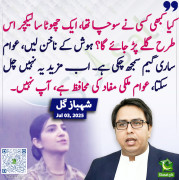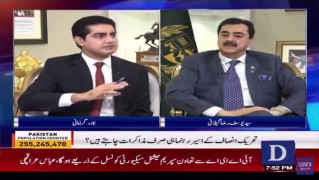Yah Jaheel dukeLondon,
Only fabricated by certain who are "personality(ies) worshiper".
Oh you can see that it is "enjoy" then from where it has been translated and propagated as "Muta marriage"
Can you show me a translations from Pickthal, Yusuf Ali, Shakir, Sher Ali, Khalifa or any other where it has been
translated as "muta marraige".
Ya Jaheel! read Quran the verses before and after somewhere word "wed" (Nikkah) etc has been used. what is then
the verse, according to you where the arabic word "marriage" has been used in whole of Quran. Just show me a reference.
Dont invent lie against Allah. One who does so, is perished. Allah talks only one Marriage and that is all.
Rests what you have written has no value.
Now your favoured sentence:
care of that necklace in your neck like Aasoobilla.
yes it is,The Arabic dictionaries define mut'a as 'enjoyment, pleasure, delight'. The root form, m-t: signifies, 'to carry away, to take away'
A 'marriage of mut'a' is a marriage which the contract stipulates will last for a fixed period of time
Only fabricated by certain who are "personality(ies) worshiper".
Didnt, I say something in my previous post, you can only find it anywhere less Quran.This 'marriage of mut'a' is referred to both in the hadith literature and, in much more detail, in the books on jurisprudence (fiqh). In the hadith and in other sayings related from early Muslims the word 'mut'a' itself is usually employed.
because the Qur'an itself refers to this kind of marriage employing a term derived from the same root. In the following verse, the word istimta', the tenth verbal form of the root m-t-', is translated as 'enjoy': 'So those of them [women] whom you enjoy, give to them their appointed wages' (4:24)
Oh you can see that it is "enjoy" then from where it has been translated and propagated as "Muta marriage"
Can you show me a translations from Pickthal, Yusuf Ali, Shakir, Sher Ali, Khalifa or any other where it has been
translated as "muta marraige".
In the above verse, the Arabic equivalent of the word "marriage" or any of its derivatives has NOT been used. Rather the derivative of word "Mut'a" (pleasure/temporary marriage) has been used, i.e., "Istamta'tum". The word Istamta'a is the tenth verbal form of the root m-t-a. Mut'a is one type of marriage, but some of it's regulations are different than the permanent marriage, including the fact that the couple can extend this contract by mutual agreement as the end of verse specifies.
Ya Jaheel! read Quran the verses before and after somewhere word "wed" (Nikkah) etc has been used. what is then
the verse, according to you where the arabic word "marriage" has been used in whole of Quran. Just show me a reference.
Allah (SWT) is discussing different types of marriages: first, permanent marriage in the verses before Verse 24, then temporary marriage in Verse 24, and then marriage with the slave girls in Verse 25. Thus Allah(SWT) repeated the issue of dowry three times, one for permanent marriage, one for temporary marriage and one for the bondwomen.
Dont invent lie against Allah. One who does so, is perished. Allah talks only one Marriage and that is all.
Rests what you have written has no value.
Now your favoured sentence:
Ya Jaheel. Go and propogate shiaism, you will be litterally countered when you will misquote quran. TakeAQAL KAY ANDHAY BABA DEENA, YE PARHO AUR SOCH SAMAJH KAY BAKWAAS KIYA KARO ISLAM, QURAN AUR ARBI KAY BAAREY MEIN:
care of that necklace in your neck like Aasoobilla.































